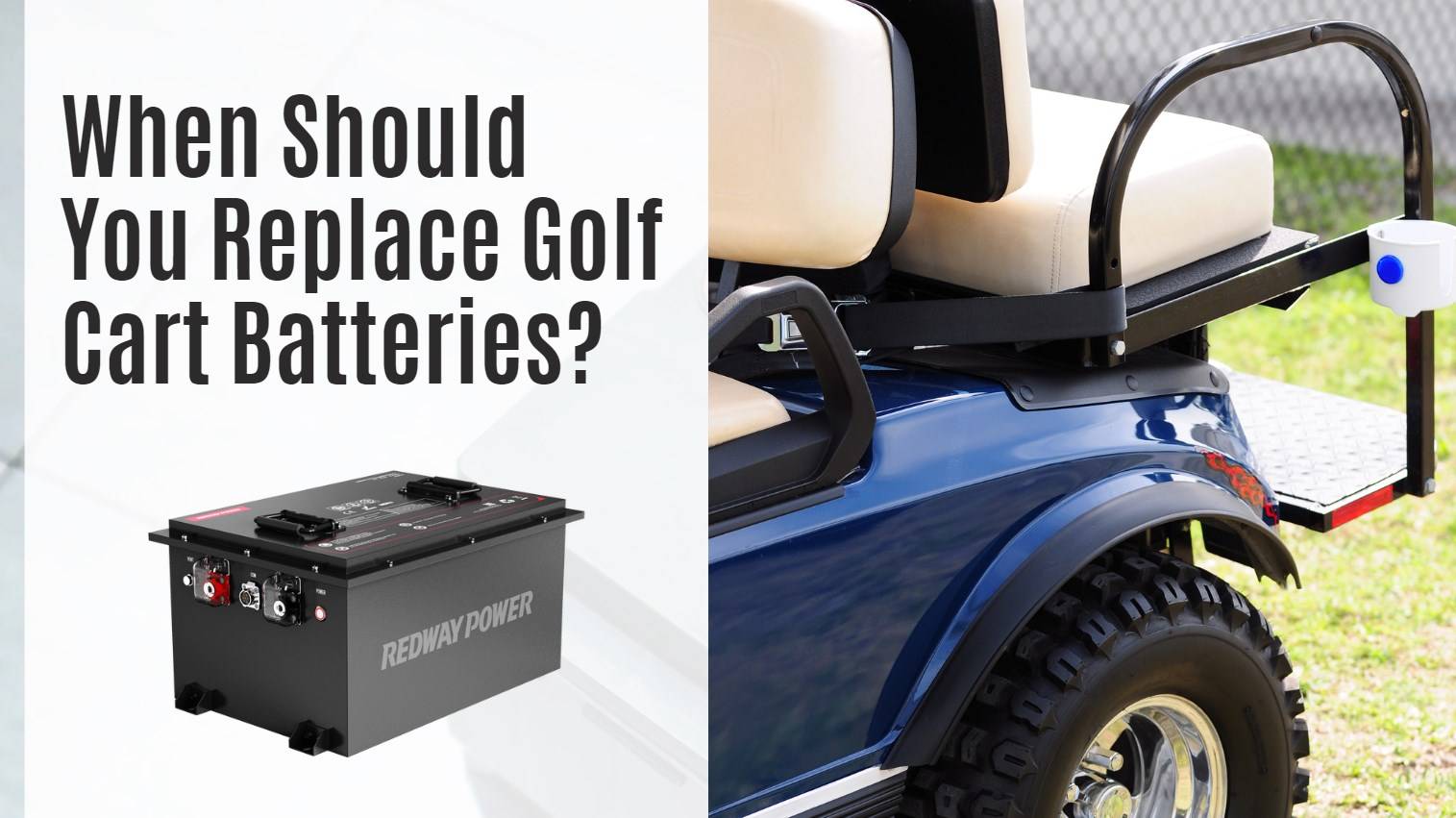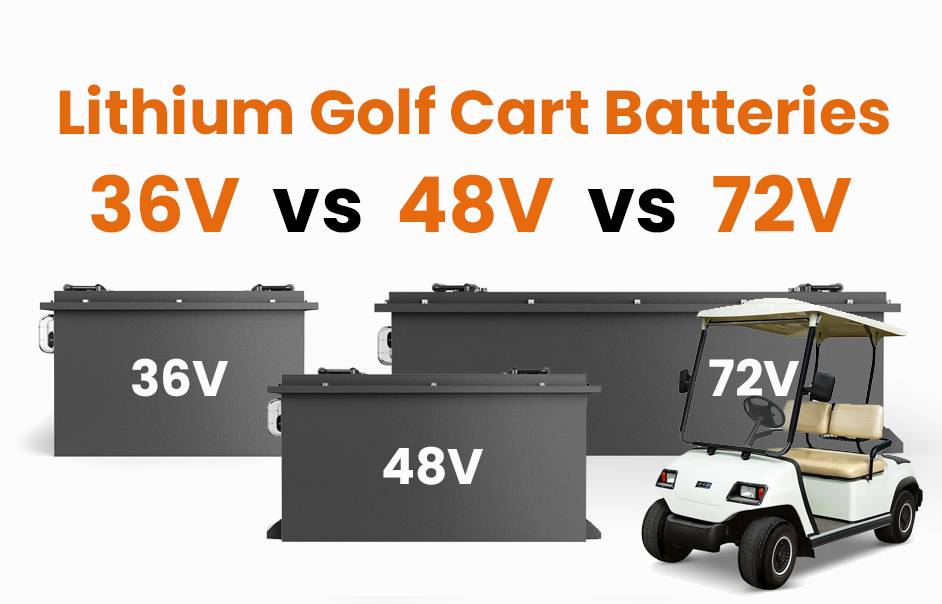
Blog
When Should You Replace Golf Cart Batteries?

Golf cart batteries typically need replacement every 4 to 6 years, depending on usage and maintenance. Signs of failing batteries include decreased performance, longer charging times, and physical damage. Regular monitoring can help ensure optimal performance and timely replacement.
What are the Signs of Failing Golf Cart Batteries?
Recognizing the signs of failing golf cart batteries is crucial for maintaining performance:
- Decreased Range: If your golf cart doesn’t travel as far as it used to on a full charge, it may be time for new batteries.
- Longer Charging Times: Increased charging duration can indicate battery wear.
- Physical Damage: Look for swelling, cracks, or leaks in the battery casing.
- Corrosion: Excessive corrosion around terminals can affect connectivity and performance.
Chart: Common Signs of Battery Failure
| Sign | Description |
|---|---|
| Decreased Range | Reduced distance traveled per charge |
| Longer Charging Times | Takes more time to reach full charge |
| Physical Damage | Visible cracks or leaks in battery casing |
| Corrosion | Build-up around terminals affecting connection |
How Long Do Golf Cart Batteries Typically Last?
The lifespan of golf cart batteries varies based on type and usage:
- Lead-Acid Batteries: Generally last 4 to 6 years with proper maintenance.
- Lithium-Ion Batteries: Can last up to 10 years, offering longer life and better performance.
Why is Regular Maintenance Important for Golf Cart Batteries?
Regular maintenance extends battery life and ensures optimal performance:
- Cleaning Terminals: Prevents corrosion that can hinder performance.
- Checking Water Levels: For flooded lead-acid batteries, maintaining proper water levels is essential.
- Monitoring Charge Cycles: Avoiding deep discharges helps prolong battery lifespan.
What Factors Affect the Lifespan of Golf Cart Batteries?
Several factors influence how long golf cart batteries last:
- Usage Frequency: More frequent use can lead to quicker wear.
- Charging Practices: Overcharging or undercharging can shorten battery life.
- Environmental Conditions: Extreme temperatures can negatively impact battery performance.
How to Test Golf Cart Batteries for Replacement?
Testing your golf cart batteries can help determine if they need replacement:
- Voltage Check: Use a multimeter to measure voltage; a reading below 50% indicates potential failure.
- Load Test: Apply a load tester to assess how well the battery performs under stress.
- Hydrometer Test (for flooded batteries): Measure specific gravity to check battery health.
Chart: Battery Testing Methods
| Method | Description |
|---|---|
| Voltage Check | Measures voltage output using a multimeter |
| Load Test | Assesses performance under load conditions |
| Hydrometer Test | Checks specific gravity for flooded batteries |
What Types of Batteries are Best for Golf Carts?
Choosing the right battery type is crucial for performance:
- Lead-Acid Batteries: Cost-effective but require more maintenance.
- Lithium-Ion Batteries: Higher upfront cost but offer longer life and less maintenance.
How to Properly Dispose of Old Golf Cart Batteries?
Disposing of old golf cart batteries should be done responsibly:
- Recycling Centers: Many centers accept lead-acid and lithium-ion batteries for recycling.
- Retailer Takeback Programs: Some retailers offer takeback programs when purchasing new batteries.
- Local Regulations: Always follow local laws regarding hazardous waste disposal.
Industrial News
Recent developments in golf cart battery technology focus on enhancing efficiency and sustainability. Manufacturers are increasingly offering lithium-ion options due to their longer lifespan and reduced environmental impact compared to traditional lead-acid batteries. Innovations in battery management systems are also improving safety and performance, making modern golf carts more reliable than ever.
Expert Insight
“Understanding when to replace your golf cart batteries can save you from unexpected downtime,” states John Doe, a battery technology expert. “Regular maintenance checks and awareness of performance indicators are key in ensuring your golf cart remains operational without unnecessary interruptions.”
Lithium Golf Cart Conversion is Cheaper than you Might Think!
New Insights
Here are the latest news articles discussing when you should replace golf cart batteries:
- A guide from Big Battery provides a step-by-step process for replacing your golf cart battery, emphasizing the importance of regular maintenance checks and indicating that it’s time to replace batteries when they can no longer hold a charge or when their performance significantly declines.
- Continental Battery’s blog post outlines three clear signs that it’s time to replace your golf cart batteries, including noticeable loss of power, an increase in charging time, and physical damage to the battery. The article also offers a DIY guide for replacing the batteries.
-
Golfspan’s comprehensive review not only lists the best golf cart batteries but also discusses the signals that indicate the need for battery replacement, such as reduced travel distance on a full charge and slower acceleration. The article suggests that maintaining a voltmeter test can help preemptively determine when batteries are on the decline.
“Golf cart battery replacements should be prioritized based on performance decline and maintenance indicators. Signs such as reduced power, increased charging time, and physical battery wear are critical to monitor. Regular voltmeter tests can preemptively signal the need for a change. As a lithium battery expert, I advocate for proactive battery care to ensure consistent cart performance and longevity.” — Mr. Raza, Lithium Battery Expert from Redway Power
FAQs
Q: How often should I check my golf cart batteries?
A: It’s recommended to check your batteries at least once a month for signs of wear or damage.Q: Can I mix different types of batteries in my golf cart?
A: No, mixing different types or brands can lead to poor performance and potential damage.Q: What should I do if my golf cart won’t hold a charge?
A: Check for physical damage, test the voltage, and consider replacing the batteries if they show signs of failure.
How to Simplify Golf Cart Battery Watering?
Where to Find Golf Cart Maintenance Accessories?
How to Clean Golf Cart Battery Connectors?
How to Safely Install New Golf Cart Batteries?
What Tools Are Needed for Golf Cart Battery Installation?
What Kinds of Batteries Are Used in Golf Carts?
More FAQs
To provide further clarity, here are some frequently asked questions about replacing golf cart batteries:
- Q1: How long do golf cart batteries typically last?
- A1: Golf cart batteries last an average of four to six years if well-maintained. However, this can vary depending on usage patterns and maintenance practices.
- Q2: Can I replace only one battery if it’s faulty?
- A2: It’s recommended to replace all the batteries at once, even if only one is faulty. This ensures balanced performance and avoids issues in the future.
- Q3: Can I use regular car batteries in my golf cart?
- A3: No, regular car batteries are not suitable for golf carts. Golf cart batteries are specifically designed to provide the power and longevity required for golf cart applications.
- Q4: How often should I charge my golf cart batteries?
- A4: It’s best to charge your golf cart batteries after each use. Avoid letting the batteries fully discharge, as this can shorten their lifespan.
- Q5: Can I extend the lifespan of my golf cart batteries?
- A5: Yes, proper maintenance, regular charging, and following usage guidelines can help extend the lifespan of your golf cart batteries.
Conclusion:
Knowing when to replace golf cart batteries is essential for maintaining optimal performance and prolonging battery life. By paying attention to the signs of deterioration, testing battery voltage, and following proper maintenance practices, you can ensure that your golf cart batteries serve you well for years to come. Remember to consult with professionals and choose high-quality replacement batteries for the best results. Happy golfing!






